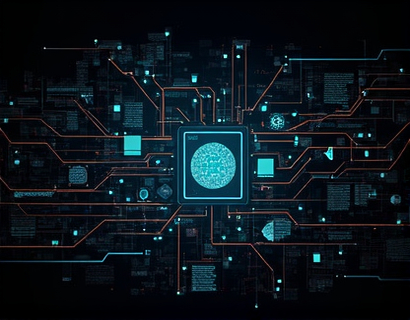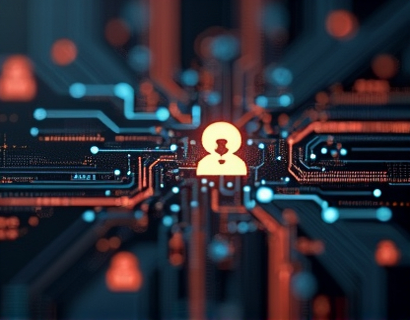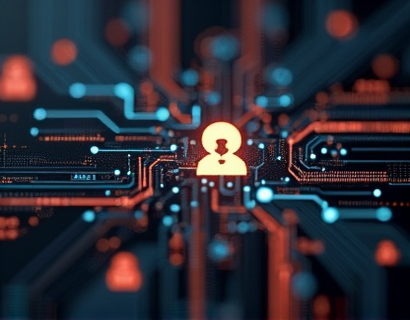Transforming Digital Engagement: The Synergy of Crypto and AI in Intelligent App Ecosystems
The intersection of cryptocurrency and artificial intelligence (AI) is giving rise to a new era of digital engagement, where app ecosystems are being transformed to offer enhanced user experiences. This convergence is not just a technological advancement but a paradigm shift in how we interact with digital platforms, driving innovation and growth across the tech sector. As we delve into this topic, it's essential to understand the foundational elements of both technologies and how they complement each other to create smarter, more secure, and more engaging applications.
Understanding Cryptocurrency and AI
Cryptocurrency, since its inception with Bitcoin in 2009, has revolutionized the way we think about money and transactions. It operates on blockchain technology, a decentralized ledger that ensures transparency, security, and immutability. Beyond mere digital currencies, the blockchain's potential extends to various industries, including finance, supply chain, and healthcare, by providing a trustless and efficient way to conduct transactions.
Artificial intelligence, on the other hand, involves the simulation of human intelligence processes by machines, particularly computer systems. These processes include learning (the acquisition of information and rules for using it), reasoning (using rules to reach approximate or definite conclusions), and self-correction. AI technologies such as machine learning, natural language processing, and computer vision are transforming industries by automating tasks, providing insights from complex data, and enhancing user interactions.
The Convergence of Crypto and AI
The combination of cryptocurrency and AI creates a powerful synergy that can redefine digital engagement. By leveraging the security and transparency of blockchain, AI applications can operate with enhanced trust and efficiency. For instance, AI algorithms can be deployed on blockchain networks to perform complex computations and data analyses without the risk of data tampering or unauthorized access.
One of the key areas where this synergy is making a significant impact is in the development of intelligent app ecosystems. These ecosystems integrate AI-driven functionalities with blockchain-based infrastructure to offer users seamless, secure, and personalized experiences. Let's explore how this convergence is reshaping app ecosystems and driving growth in the tech sector.
Enhanced Security and Trust
Security is a paramount concern in the digital world, and the integration of blockchain and AI addresses this issue effectively. Blockchain's decentralized nature ensures that data is not stored in a single point of failure, making it highly resistant to cyber attacks. AI, with its advanced analytics and pattern recognition capabilities, can detect and mitigate potential security threats in real-time.
For example, AI-powered security systems can monitor blockchain transactions for unusual activities, such as unusual transaction volumes or patterns that deviate from the norm. By combining these technologies, app ecosystems can provide a higher level of security, fostering user trust and encouraging more widespread adoption of digital solutions.
Personalized User Experiences
AI's strength lies in its ability to analyze vast amounts of data and derive meaningful insights. In the context of app ecosystems, AI can be used to create highly personalized user experiences. By understanding user preferences, behaviors, and interactions, AI algorithms can tailor content, recommendations, and functionalities to individual needs.
When integrated with blockchain, these personalized experiences can be secured and owned by the users themselves. For instance, AI can curate a personalized feed of news articles, products, or services based on a user's blockchain-based profile and preferences. This not only enhances user engagement but also empowers users by giving them control over their data and digital identities.
Decentralized and Autonomous Applications
The convergence of crypto and AI is also enabling the development of decentralized and autonomous applications, commonly known as dApps. These applications run on blockchain networks and leverage AI to perform tasks that traditionally required centralized servers and intermediaries.
dApps can automate processes, make decisions based on data analytics, and execute smart contracts without human intervention. For example, a decentralized finance (DeFi) platform can use AI to optimize loan pricing, risk assessment, and portfolio management, all while ensuring transparency and security through blockchain technology.
Fraud Prevention and Compliance
Fraud and non-compliance are significant challenges in the digital space, particularly in financial transactions and data handling. AI, with its advanced detection capabilities, can identify and prevent fraudulent activities in real-time. When combined with the immutable and transparent nature of blockchain, these systems become nearly impenetrable.
For instance, AI can analyze transaction patterns to detect anomalies that indicate fraudulent behavior. Blockchain ensures that all transactions are recorded and verifiable, making it easier to trace and prevent fraud. This synergy not only protects users but also helps organizations comply with regulatory requirements, reducing the risk of legal and financial penalties.
Supply Chain Optimization
Beyond financial and user-facing applications, the crypto-AI convergence is transforming supply chain management. By integrating blockchain for transparent and secure tracking of goods, and AI for predictive analytics and optimization, companies can achieve greater efficiency and reliability.
AI can predict demand, optimize inventory levels, and identify bottlenecks in the supply chain. Blockchain ensures that all transactions and movements are recorded and verifiable, reducing the risk of fraud and errors. This combination leads to faster, more accurate, and cost-effective supply chain operations, benefiting both businesses and consumers.
Case Studies and Real-World Applications
Several projects and platforms are already leveraging the synergy between cryptocurrency and AI to enhance digital experiences. One notable example is a decentralized social media platform that uses AI to moderate content and ensure user safety, while blockchain ensures data ownership and privacy. Users can earn cryptocurrency for creating and sharing content, creating a tokenized economy that incentivizes positive behavior.
Another example is an AI-driven healthcare platform that uses blockchain to secure patient data and AI to analyze medical records for personalized treatment recommendations. This not only improves patient outcomes but also ensures compliance with data protection regulations.
Challenges and Future Prospects
Despite the numerous benefits, the integration of cryptocurrency and AI in app ecosystems is not without challenges. Scalability, regulatory uncertainty, and technical complexity are some of the hurdles that need to be addressed. However, as technology advances and more projects demonstrate the viability of this approach, these challenges are likely to be overcome.
The future of digital engagement lies in the continued innovation at the intersection of crypto and AI. As these technologies mature, we can expect to see more sophisticated and user-centric applications that redefine how we interact with digital platforms. The potential for growth and transformation is immense, making this an exciting and pivotal moment in the tech landscape.
In conclusion, the convergence of cryptocurrency and AI is not just a technological trend but a fundamental shift in how we build and interact with digital ecosystems. By enhancing security, personalizing user experiences, enabling decentralized applications, and optimizing supply chains, this synergy is driving significant growth and innovation. As we move forward, the possibilities are endless, and the impact on the tech sector and beyond will be profound.










































